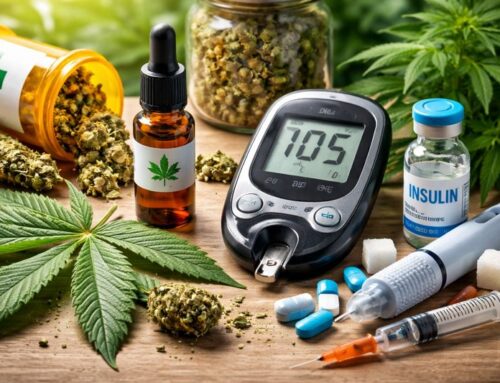Wondering how Delta 8 vs Delta 9 vs Delta 10 THC differ? This article will directly compare these cannabinoids’ effects, potency, and benefits. Whether you’re seeking a milder high, an intense psychoactive experience, or a boost in focus, we’ll clarify which THC type might be right for you.
Key Takeaways
- Delta 8, Delta 9, and Delta 10 THC are distinct cannabinoids from the cannabis plant, differing primarily in potency, psychoactive effects, and chemical structure.
- Delta 9 THC is the most potent with intense psychoactive effects, while Delta 8 offers milder effects, and Delta 10 provides a more energizing experience with potential focus-enhancing benefits.
- The legal status and safety of these THC types vary by state and product quality, making it essential for consumers to be informed about local regulations and seek third-party tested products for safety.
Introduction to Cannabis
Cannabis plants have fascinated people for centuries, not only for their cultural significance but also for their unique chemical makeup and potential health benefits. The cannabis plant contains over 100 different cannabinoids, with delta 9 THC, delta 8 THC, and delta 10 THC standing out as the primary psychoactive components. While delta 9 THC is the most well-known, delta 8 and delta 10 are gaining attention for their distinct effects and legal status.
Hemp plants, a specific variety of the cannabis plant, are especially important in today’s market. They are used to produce hemp-derived CBD, which can be transformed into other cannabinoids like delta 8 and delta 10 THC through a specialized chemical process. This process allows manufacturers to create a range of products that offer different experiences and benefits. Understanding how these cannabinoids differ—and how they interact with the body—can help consumers make informed choices about which cannabis products best suit their needs.
Understanding Delta 8, Delta 9, and Delta 10 THC
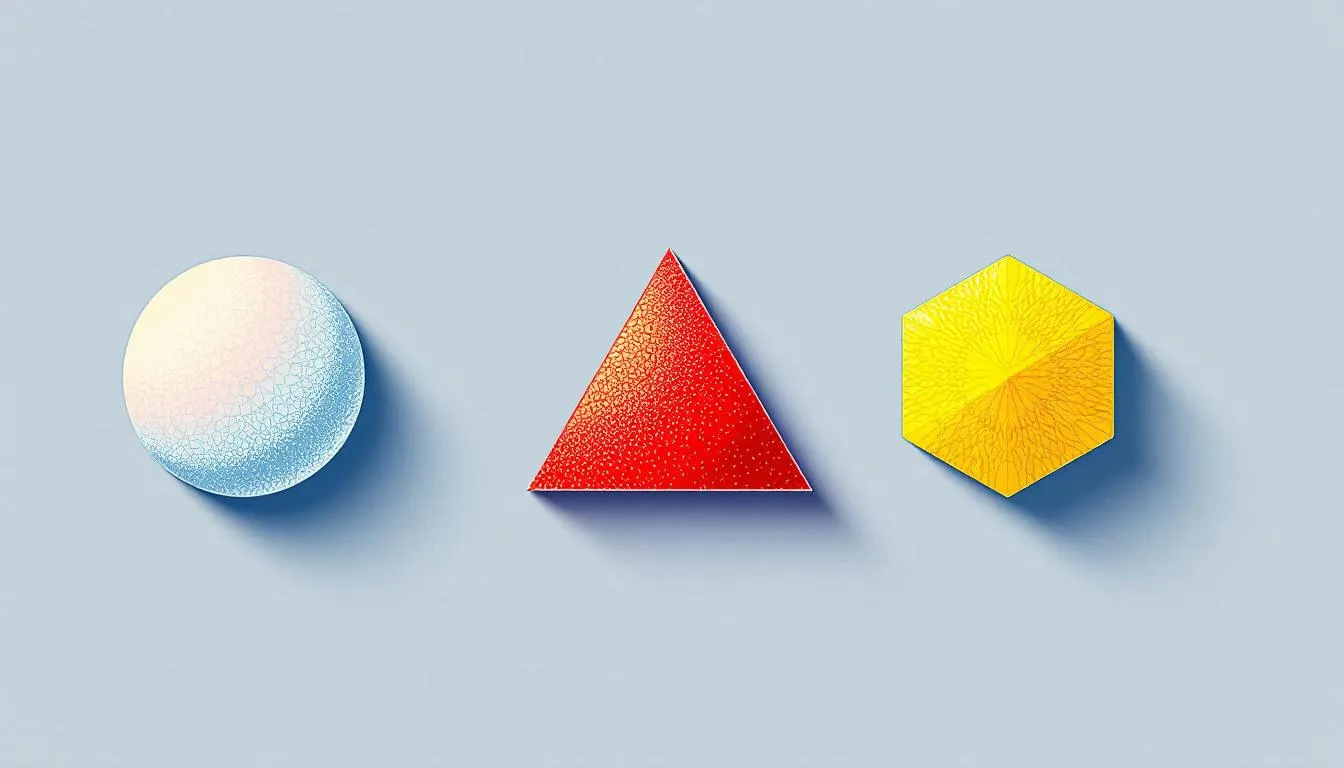
The cannabis plant is home to a variety of cannabinoids, each with unique properties and effects, including other cannabinoids. Notable among these are Delta 8 THC, Delta 9 THC, and Delta 10 THC, which have unique characteristics that distinguish them from one another:
- Delta 9 THC: The main psychoactive component in cannabis, responsible for the ‘high’ and primary psychoactive effects.
- Delta 8 THC: A relatively new cannabinoid player on the scene.
- Delta 10 THC: Another relatively new cannabinoid with distinct properties.
These three THC types are chemically similar, yet subtle differences in their carbon bonding lead to distinct experiences.
These differences influence how each THC type interacts with the endocannabinoid system and, consequently, their effects on the body. The cannabis and hemp plants naturally contain these cannabinoids, with each one offering a unique profile of effects and benefits, including hemp and cannabis plants. Delta 8 and Delta 10 THC are found only in trace amounts in cannabis and hemp plants, which is why they are often synthesized for commercial use.
Examining each will help appreciate their individual characteristics.
Delta 8 THC
Delta 8 THC is a minor cannabinoid found in cannabis plants. It occurs naturally, but in low concentrations. Often referred to as “diet weed,” it is gaining popularity due to its milder psychoactive effects compared to Delta 9 THC. This cannabinoid is typically synthesized from hemp-derived CBD using organic solvents, making it a semi-synthetic compound. The chemical structure of Delta 8 THC differs from Delta 9 THC by a double bond on the eighth carbon atom instead of the ninth, which partially explains the differences in their effects and potency.
Delta 8 THC binds to cannabinoid receptors in the endocannabinoid system, but with a lower affinity than Delta 9 THC, resulting in less intense euphoria and a smoother, more calming experience.
It is often chosen for its potential therapeutic benefits, such as suppressing inflammation and providing a more manageable non psychoactive experience for those who find Delta 9 THC too potent. Some studies and anecdotal reports suggest Delta 8 THC may offer medicinal benefits, but more research is needed to confirm these effects.
Delta 9 THC
It was first isolated from the cannabis plant in 1964 and has since been the most researched and prevalent cannabinoid in cannabis products. Delta 9 THC features a double bond on the ninth carbon atom. This structural characteristic enhances its stability and potency relative to other THC variants.
As the dominant presence in the cannabis market, Delta 9 THC is included in most THC products and is often associated with intense euphoria and significant psychoactive effects. Delta 9 THC binds to cannabinoid receptors, specifically CB1 and CB2, within the endocannabinoid system. Its strong interaction with the endocannabinoid system’s CB1 receptors leads to its powerful effects on mood, memory, and pain sensation, making it the go-to choice for many cannabis users seeking a potent high. Delta 9 THC also influences other physiological functions, such as regulating body temperature, through its action on the endocannabinoid system.
Delta 10 THC
Delta 10 THC is a new cannabinoid on the market, derived from hemp and known for its psychoactive properties. It is produced through isomerization, a process that typically involves converting hemp-derived CBD using solvents and acids. Delta 10 THC’s structure is similar to Delta 9 THC but differs in the arrangement of carbon atoms, which contributes to its unique effects.
Although less potent than Delta 9 THC, Delta 10 offers an uplifting and energizing experience, often described as a boost in focus and creativity. Its emergence in the cannabis market is relatively recent, and it continues to gain attention for its distinct effects, making it an intriguing option for those looking for an alternative to the traditional THC experience.
Other Compounds in Cannabis
Beyond THC, cannabis plants are rich in a variety of other compounds that contribute to their therapeutic benefits. One of the most notable is CBD, a non-psychoactive cannabinoid that has been linked to potential health benefits such as reduced anxiety and pain relief. Unlike THC, CBD does not produce a “high,” making it a popular choice for those seeking relief without psychoactive effects.
Cannabis also contains terpenes, which are responsible for the plant’s distinctive aroma and flavor. These compounds are not just about scent—they can also offer therapeutic effects, such as promoting relaxation or alertness. Flavonoids, another group of compounds found in cannabis and many other plants, are known for their antioxidant and anti-inflammatory properties, which may contribute to overall wellness.
The unique combination of cannabinoids, terpenes, and flavonoids in each cannabis product can create a range of therapeutic effects. As research continues, we are learning more about how these compounds work together to enhance the potential health benefits of cannabis.
How Each THC Type Interacts with the Body
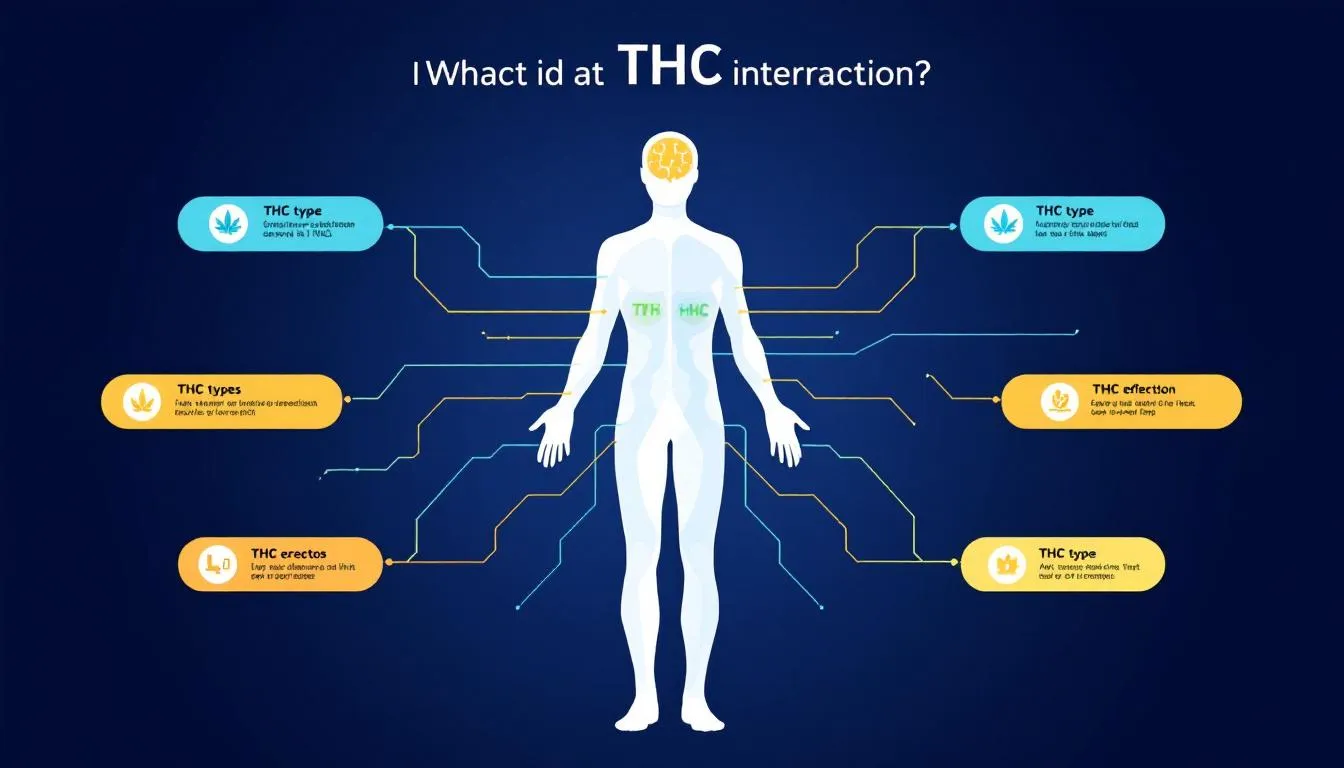
The interaction of Delta 8, Delta 9, and Delta 10 THC with the body revolves around the endocannabinoid system, a critical component influencing various brain functions. These THC types bind to cannabinoid receptors, affecting mood, memory, and pain sensation.
Understanding this interaction helps explain the varying impacts of each THC type on the body and highlights their distinct potency and effects.
Endocannabinoid System
The endocannabinoid system (ECS) is a complex network of receptors that play a pivotal role in regulating neural circuits and maintaining homeostasis within the body. THC primarily binds to CB1 and CB2 receptors in the ECS, altering neurotransmitter activity and impacting various physiological processes. The binding of THC to these receptors triggers both psychoactive and therapeutic effects, influencing mood, memory, and pain sensation.
Endocannabinoids are released from postsynaptic sites and signal retrogradely to activate cannabinoid receptors on presynaptic neurons. This intricate signaling mechanism underscores the significant role of the ECS in mediating the effects of different cannabinoids, including THC.
Understanding this system is crucial for appreciating how Delta 8, Delta 9, and Delta 10 THC interact with the body and produce their unique effects.
Psychoactive Effects
The psychoactive effects of Delta 8, Delta 9, and Delta 10 THC vary significantly:
- Delta 9: The most potent and extensively researched, producing intense euphoria.
- Delta 8: Produces milder, calming effects, often described as a smoother experience compared to Delta 9.
- Delta 10: Offers an uplifting and energizing effect without the paranoia sometimes associated with Delta 9.
Cannabinoids primarily interact with CB1 and CB2 receptors in the endocannabinoid system to influence these psychoactive effects. The duration of these effects can also vary, with Delta 9 typically lasting longer than Delta 8. Considering these differences is crucial when choosing a THC product to match your desired experience.
Therapeutic Benefits
Delta 8 THC is known for its potential therapeutic benefits, such as reduced anxiety and providing pain relief. Users often report a calming effect, making it popular for those seeking anxiety relief without significant intoxication. Delta 9 THC also offers therapeutic benefits, including pain relief and appetite stimulation, but its intense psychoactive effects may not be suitable for everyone. Some animal studies and scientific reports suggest that both Delta 8 and Delta 9 THC may help alleviate symptoms of multiple sclerosis, such as muscle stiffness and spasms.
The therapeutic effects of Delta 10 THC are still under research, but initial reports suggest it may have anti-inflammatory properties and could enhance mood and focus. Each THC type offers unique therapeutic benefits, and ongoing research continues to uncover their potential health benefits and medicinal applications.
Comparing Potency and Effects
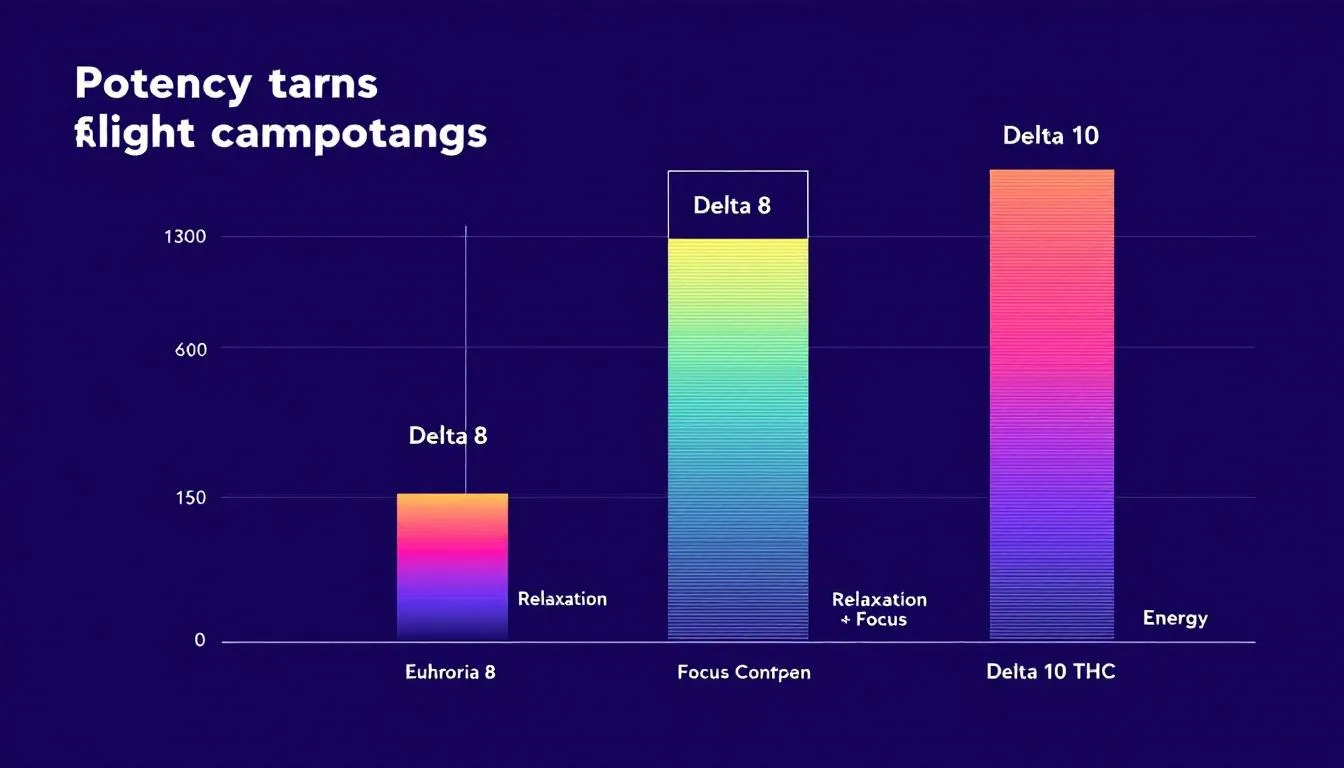
When comparing the potency and effects of Delta 8, Delta 9, and Delta 10 THC, it’s essential to understand that each type has unique characteristics:
- Delta 9 THC is the most potent, known for its intense euphoria and significant psychoactive effects.
- Delta 8 offers a milder high.
- Delta 10 provides an energizing and creative boost.
These differences are crucial for selecting the appropriate cannabis product to meet your needs, as the main difference can significantly impact your choice.
Delta 8 THC Potency and Effects
Delta 8 THC is less potent than Delta 9 THC, often resulting in a milder high that appeals to those seeking a more manageable psychoactive experience. Common reactions to Delta 8 include confusion, dizziness, and low blood pressure, but individual tolerance levels can significantly influence these effects.
The lower potency of Delta 8 appeals to users with a low dose tolerance or those who prefer a milder euphoria in a potent form.
Delta 9 THC Potency and Effects
Delta 9 THC is renowned for its strong psychoactive effects, often resulting in significant euphoria and a potent high, leading to a euphoric high. This intense euphoria can vary widely among users based on individual tolerance levels, with some requiring high doses to achieve the desired effects.
The powerful interaction with the endocannabinoid system’s CB1 receptors contributes to its dominant presence in the cannabis market and its reputation for delivering intense psychoactive compound experiences.
Delta 10 THC Potency and Effects
Delta 10 THC is less potent than Delta 9 THC but offers a unique set of effects that can enhance focus and creativity. Users report feeling euphoric and more focused, making it an appealing option for those seeking an energizing boost without the intense high of Delta 9.
Research also suggests that Delta 10 may possess anti-inflammatory properties, adding to its therapeutic potential.
Legal Status and Availability
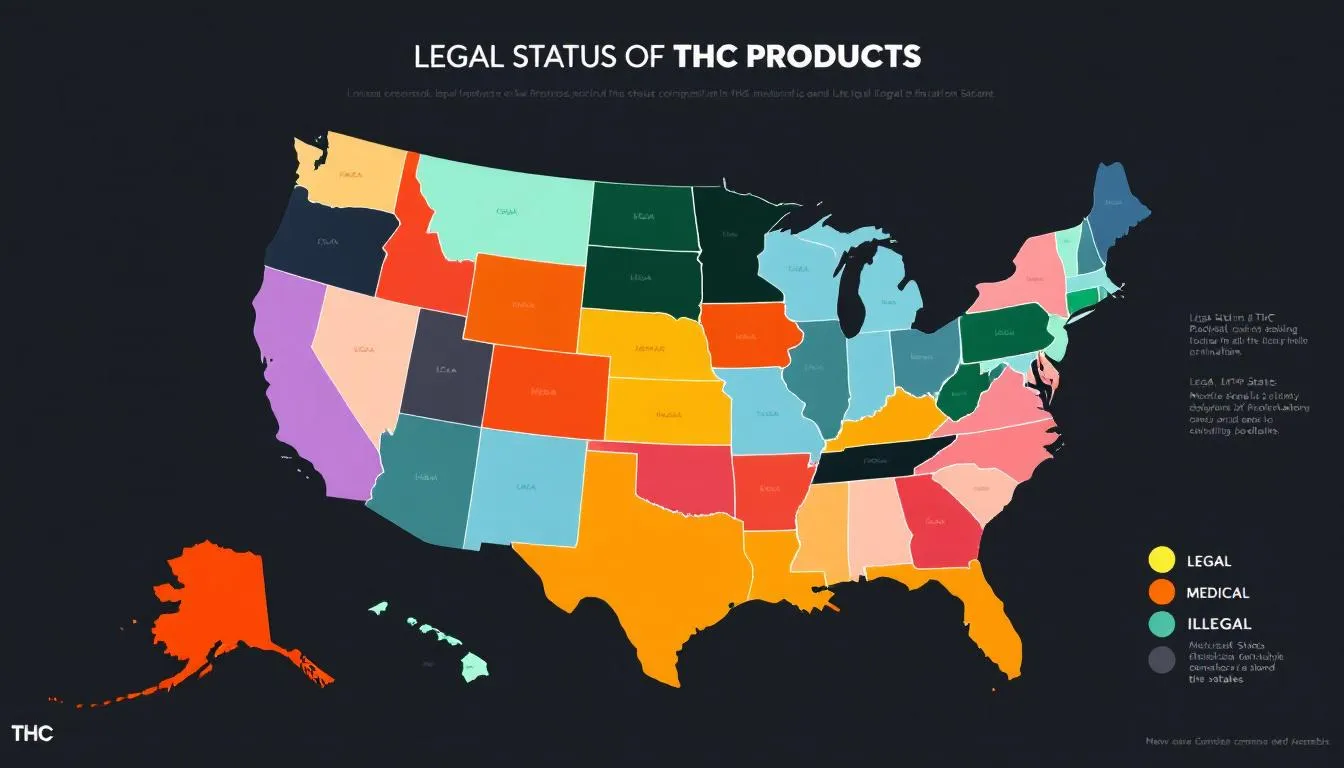
The legal status and availability of Delta 8, Delta 9, and Delta 10 THC vary widely by state and federal laws. Staying informed about local regulations ensures legal purchasing and use of these products. Age restrictions for purchasing Delta 8, Delta 9, and Delta 10 THC products also vary by state, with some areas imposing strict age limits while others have more lenient or unclear regulations.
This section will help you navigate the complex legal landscape and identify where to find these THC products.
Federal Laws
Under federal law, Delta 8 THC is federally legal as long as it complies with the 2018 Farm Bill, which permits hemp-derived products containing less than 0.3% Delta 9 THC by dry weight. This legislation defines legal hemp and sets the standards for THC content in hemp-derived products.
However, this does not guarantee uniform acceptance across all states, as local laws can vary.
State Laws
State laws regarding THC products can differ significantly, with some states embracing these substances while others impose strict bans or severe restrictions. For instance, Delta 9 THC is often legal in many jurisdictions for medical or recreational marijuana use, whereas Delta 8 and Delta 10 may face more stringent regulations.
Awareness of local laws and regulations is crucial before you purchase products any THC products.
Where to Purchase
THC products, including Delta 8, Delta 9, and Delta 10, can be found in various places such as vape shops, gas stations, and convenience stores. However, Delta 10 THC is still a novelty on the market, leading to uncertain availability and variable quality.
Looking for a Certificate of Analysis (COA) ensures product safety and quality when purchasing hemp-derived products.
Safety and Side Effects
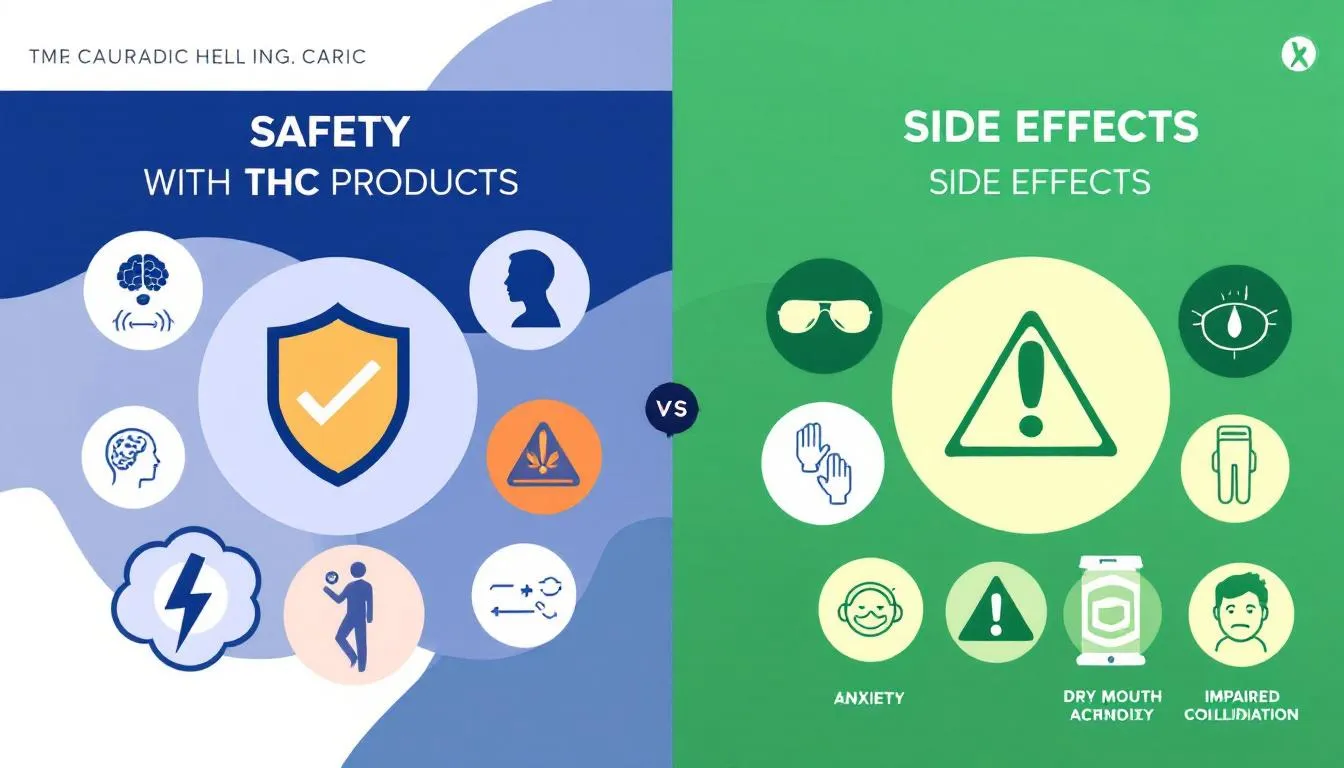
Safety and side effects are essential considerations when using any THC product. Limited regulation in the manufacturing process of Delta 8 THC products may lead to harmful additives being present, underscoring the importance of quality control and certified products.
Common Side Effects
Common side effects of THC include:
- Dry mouth
- Red eyes
- Drowsiness
- Impaired coordination
- Slowed reaction time
Delta 8 THC is less likely to cause paranoia compared to Delta 9 THC, making it a preferable option for some users.
Knowledge of these side effects helps users make informed decisions about their THC consumption.
Long-term Safety
Research on the long-term effects of Delta 8 THC is still in its infancy, with insufficient studies available to draw definitive conclusions. Similarly, very little is known about the long-term safety of Delta 10 THC, making it essential for users to approach these newer cannabinoids with caution and stay updated with ongoing research.
Delta 9 THC, however, has been extensively studied, providing more established data on its long-term effects. Nonetheless, more research is needed to fully understand the implications of chronic pain and chronic use of all THC types. Users should consider these uncertainties when deciding which THC product to incorporate into their routine.
Quality Control
Quality control is a crucial aspect of ensuring the safety of THC products. Consumers should always seek products that have undergone third-party testing to verify their safety and quality. This is particularly important for Delta 8 and Delta 10 THC products, which may lack comprehensive regulatory oversight.
Potential contamination from chemicals and heavy metals is a significant concern, making it essential for consumers to be cautious of products that do not come with certification from reputable third-party testing facilities during the chemical process.
Proper quality control measures can mitigate the risks associated with using THC products.
Drug Tests and Detection
Drug tests are designed to detect THC metabolites but may struggle to differentiate between Delta 8, Delta 9, and Delta 10 THC. Knowing how these tests work and how to prepare for them is crucial for those subject to routine drug screenings.
Drug Test Sensitivity
Standard drug tests typically detect THC metabolites, particularly THC-COOH, in urine. These tests cannot differentiate between Delta 8, Delta 9, and Delta 10 THC, leading to a positive result regardless of which THC type was consumed.
Users of Delta 8 and Delta 10 THC should be aware of the potential for false positives or undesired consequences on drug tests designed primarily for Delta 9 THC. This can be particularly problematic in workplaces with strict drug testing policies.
Preparing for a Drug Test
Commercial drug tests primarily detect THC metabolites, which may indicate usage of different THC types. Since standard drug tests cannot reliably distinguish between Delta 8, Delta 9, and Delta 10 THC, users should consider tolerance levels and consumption methods when preparing for a drug test.
The method of consumption, such as smoking or edibles, affects how long THC stays in the system and can influence drug test outcomes. Being aware of these factors can help users better prepare and potentially avoid unexpected positive results on drug tests.
Choosing the Right THC Product for You
Choosing the right THC product involves understanding personal tolerance levels, desired effects, and legal considerations in your area.
This section provides guidance on making an informed choice that aligns with your preferences and legal requirements.
Individual Tolerance
Delta 8, Delta 9, and Delta 10 THC interact with the endocannabinoid system, affecting various brain functions and influencing user experience. Their differences include:
- Delta 9 THC: the most potent, providing intense psychoactive effects
- Delta 8 THC: milder effects compared to Delta 9
- Delta 10 THC: the least potent, with energizing properties
Choosing the right THC product should involve considering personal tolerance levels and desired psychoactive or therapeutic effects. Understanding your own tolerance can help you select a product that provides an enjoyable experience without adverse effects.
Desired Effects
Selecting a THC product requires understanding personal preferences, legal status, and intended effects. For instance, if you seek relaxation and anxiety relief, Delta 8 THC might be more suitable. If you desire intense euphoria and strong psychoactive effects, Delta 9 THC could be the right choice.
On the other hand, if you are looking for a boost in increased focus and creativity, Delta 10 THC may be the product to try. Matching the product to your desired effects ensures a satisfying and tailored experience.
Legal Considerations
The legal status of Delta 8, Delta 9, and Delta 10 THC is crucial in choosing the right product. However, state laws vary significantly, with some states embracing these substances and others enacting stricter regulations or outright bans.
Understanding the legal landscape in your area is essential for safe and legal consumption. The legal gray area of these products can lead to confusion, so it is crucial to stay informed and compliant with local laws.
Consumer Awareness: What to Know Before You Buy
Before purchasing cannabis products, it’s important for consumers to be aware of several key factors. First, the legal status of delta 8 and delta 10 THC can vary widely. While these cannabinoids are federally legal under certain conditions, some states have banned their sale and use due to health and safety concerns. Always check your local laws before you purchase products containing delta 8, delta 9, or delta 10 THC.
Another important consideration is drug testing. Commercial drug tests are designed to detect THC metabolites, but they typically cannot distinguish between delta 8, delta 9, and delta 10 THC. This means that using any of these THC products could result in a positive drug test, which is especially important for those in workplaces with strict drug policies.
Consumers should also be cautious when shopping for cannabis products. Some items labeled as “hemp products” may still contain psychoactive compounds, so it’s essential to read labels carefully and buy only from licensed, regulated sources. This helps ensure you’re getting a safe, high-quality product that delivers the potential health benefits you’re seeking.
Future of Cannabinoids
The future of cannabinoids is bright, with ongoing research uncovering new therapeutic benefits and potential health effects. The passage of the Agriculture Improvement Act of 2018, which removed hemp from the list of controlled substances, has opened the door for innovation in cannabis-derived products. As more states legalize medical or recreational marijuana, the demand for a wider variety of cannabis products continues to grow.
However, as new cannabinoids like delta 8 and delta 10 THC become increasingly popular, there is a pressing need for more research to fully understand their effects, benefits, and risks. Establishing clear regulations and quality standards will be essential to ensure consumer safety as the market expands. With continued scientific exploration and responsible industry practices, the world of cannabis and its many different cannabinoids will likely offer even more options for those seeking therapeutic benefits and enjoyable experiences in the years to come.
Summary
Navigating the complexities of Delta 8, Delta 9, and Delta 10 THC requires a solid understanding of their differences, how they interact with the body, their legal status, and safety considerations. Each THC type offers unique characteristics and effects, making it essential to choose the right product based on personal tolerance, desired effects, and legal requirements.
In the ever-evolving world of cannabis products, staying informed and making educated decisions is crucial. Whether you seek therapeutic benefits, psychoactive effects, or simply a new experience, understanding these cannabinoids will empower you to make the best choice for your needs. Stay curious, stay informed, and enjoy the journey through the fascinating world of THC.
FAQ
What are hemp-infused drinks?
Hemp-infused drinks are beverages that contain cannabinoids from the hemp plant, like CBD and THC, which may provide various health benefits. These drinks are becoming popular for their potential to promote relaxation and wellness.
What types of hemp-infused drinks are available?
Hemp-infused drinks come in various forms, such as seltzers, sodas, mocktails, coffees, and teas. Each option offers a unique way to enjoy the benefits of hemp.
How are hemp-infused drinks made?
Hemp-infused drinks are created by extracting cannabinoids from the hemp plant through solvent extraction and then incorporating them into various beverages. This process ensures that the beneficial properties of hemp are effectively infused into the drink.
What are the potential benefits of hemp-infused drinks?
Hemp-infused drinks may help with stress relief, improve sleep quality, and manage chronic pain, although more scientific research is needed to fully support these claims.
Are there any risks associated with hemp-infused drinks?
Yes, there are risks associated with hemp-infused drinks, including the presence of THC, potential drug interactions, and the necessity for cautious consumption, particularly for new users. It’s important to be mindful of these factors before trying such beverages.




